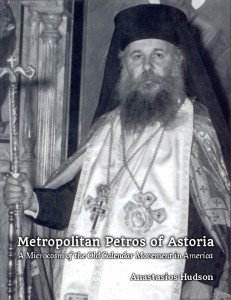God Remembers Our Labors of Love
Dear Friends in Christ,
But, beloved, we are confident of better things concerning you, yes, things that accompany salvation, though we speak in this manner. For God is not unjust to forget your work and labor of love which you have shown toward His name, in that you have ministered to the saints, and do minister. And we desire that each one of you show the same diligence to the full assurance of hope until the end, that you do not become sluggish, but imitate those who through faith and patience inherit the promises (Heb 6:9-12).
Last Saturday in Church, we heard this reading from Hebrews. From this short reading, we can discern three important themes, which form a foundation of our Christian life. These are that God does not forget our works done in love for the sake of His name; that by ministering to others we are ministering to Christ; and that we must have patience and faith until the end to inherit the reward.
The work that is required to maintain the Church is a labor of love in that it is an often thankless job which requires a great love and spirit of self-sacrifice. Some people expect the Church to be there for them when they need it, but do not otherwise frequent its services or support its activities; but the person whose work for the Church is a labor of love quietly comes and does the unglamorous work of cleaning, setting up for services, repairing a leak, and cutting the grass. All of this is done out of a desire to keep not just an institution or a building alive, but a community of believers together, to provide them with a place to gather and worship, to receive spiritual refreshment in the midst of the trials of this life. St. Paul assures us that these labors are not in vain, and that God is not unjust and does not forget them.
Apart from maintaining the physical aspects of the Church, we show our love of Christ by our ministering to others. It is in ministering to others, in this case specifically other Christians (the saints, a term that was used in a biblical sense to refer to all true believers or members of the Body of Christ) but also to strangers, that we gradually acquire the spirit of Christ, converting our broken and self-centered nature into the example of self-sacrifice and total love that He demonstrated. In fact, sometimes we have even ministered to Him directly or to angels, albeit in disguise (cf. Mat. 25:31-46, Heb. 13:2).
Finally, we must demonstrate perseverance and faithfulness in our efforts. We can’t lose hope or become tired halfway through the effort. As Christians, we are called to compete in the race, to constantly examine ourselves and make improvements. In the services of the Church, Christ is often called long-suffering. This is because not only did he suffer on the Cross, an act in and of itself an amazing act of sacrifice, but his entire life on earth was a period of suffering and self-denial, as He is God incarnate. Every act, from having to be contained in a womb for nine months, to learning how to walk, and then to travel about Israel preaching in the hot sun and face hostile crowds in some locations, was an act of self-emptying and love for us. Christ gives us the Church and is services and activities to provide instruction on how we, too, can become one with Him and then enjoy the state of restored humanity, which he demonstrated after His Resurrection, and which the Apostles acquired on the day of Pentecost.
If Christ could live on earth for over thirty years, restraining His Divine powers and glory for our sakes, we should owe him obedience. Yet our relationship with God is one of sonship; he rewards us for doing the things we should be doing anyway. Let’s be careful to constantly give thanks to God, and honor His name by ministering to others. We must be faithful and persevere. The alternative is to wither and become separated from not only God and our brothers and sisters, but also our true self. For instance, there are many people who were once Orthodox who have lost their connection to the Church and as a result have become compartmentalized and cut off from the larger community. Sometimes they had a reason to leave, whether it be a great distance to get to Church, or some bad experience that happened to them in the Church. They suffer the effects of losing the tools established for the restoration of wholeness—confession, communion, fellowship, and labors of love—often not knowing why it is that they feel the way they do. Despite this, they are still called, with us, to persevere and remain faithful, with the promise that God will remain faithful and reward them.
Faithfulness and commitment are hard things to find in modern America. The choices we make, however, ultimately decide the kind of life we will experience. No matter what the reason is that we have become stagnant or estranged from the Church, now is the time to reverse this. In a few weeks, we will celebrate the feast of Resurrection, when Christ restored all creation in Him. It was done by his accepting death, and then undoing its effects by rising and destroying its power. It was not done as an idea or act of will, but it was done “in person” by a God so loving as to come and faithfully persevere while ministering to others for over thirty years.
If you know anyone who has become estranged from Church, or you yourself feel cut off from the community, please make an effort to bring them or yourself back. The smallest effort when performed consistently and in faith will bear great fruit and be a great blessing to all.
Yours in Christ,
Father Anastasios


